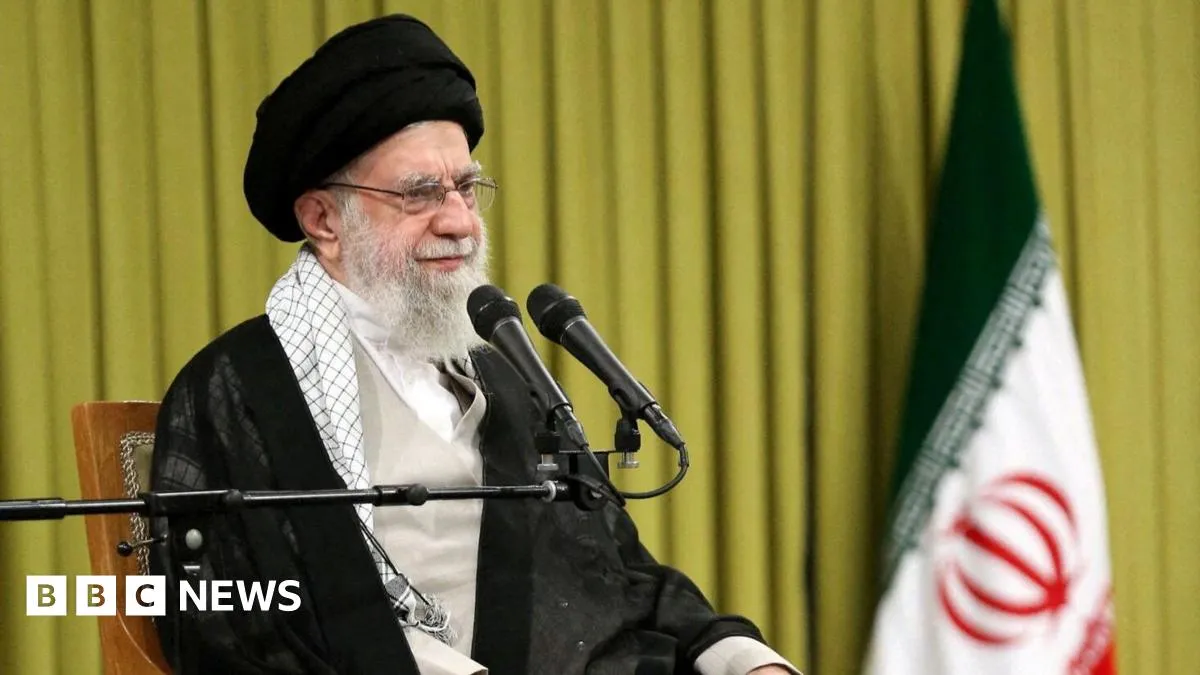
Ayatollah Khamenei, Iran's supreme leader, recently declared that the recent US military strikes were never primarily about nuclear issues or nuclear enrichment. Instead, he claims the root cause of the conflict is America's desire for Iran to surrender. Khamenei pointed out that the narrative shifts frequently—from human rights to women’s rights, and from nuclear concerns to missile issues. However, he asserted that the underlying message remains consistent: the US wants Iran to capitulate.
In his address, Khamenei stated, “The word surrender is not in our vocabulary.” He emphasized that the Iranian people have shown their unity, conveying a powerful message of solidarity. Khamenei criticized former US President Donald Trump for his calls for Iran to surrender, stating that such remarks are unbecoming of someone in his position. He added that for a nation as significant as Iran, the mere suggestion of surrender is an affront.
Khamenei further alleged that the US has continually failed to achieve meaningful results through military actions against Iran’s nuclear facilities. He described Trump’s accounts as “unusually exaggerated,” suggesting that the US was overstating its accomplishments to distort reality. “We attacked one of the US’s key bases in the region, and they attempted to downplay it,” he remarked.
In a recent message shared via the semi-official Fars News Agency on Telegram, Khamenei celebrated the unity of the Iranian people, who he claimed stood resolute in support of their armed forces. He praised the nation’s character, stating that when necessary, they present a unified voice. He highlighted the solidarity among Iran's population of approximately 90 million, asserting that they have demonstrated their strength and determination.
Khamenei also claimed that Iran dealt a significant blow to the US, asserting that the American regime achieved nothing from its military actions. He remarked that the US entered a direct conflict out of fear that the Zionist regime might be completely destroyed, yet insisted that Iran emerged victorious, delivering a “hard slap to America’s face.”
Interestingly, the supreme leader has not made a public appearance for over a week, having last spoken on June 18. Speculation about his whereabouts has circulated in Israeli media, which has been closely observing the potential for regime change in Iran. Commentators on Channel 14 News suggested that Khamenei's leadership days could be numbered and hinted at his possible mental distress.
As we await Khamenei's forthcoming video address, it’s important to review the details surrounding the recent US strikes on Iran. Washington claims that these military actions have significantly hindered Iran's progress toward developing nuclear weapons. The operation—dubbed Midnight Hammer—involved 125 US military aircraft targeting three major nuclear facilities in Tehran: Fordo, Isfahan, and Natanz. The strikes occurred on a Saturday night, between 22:40 and 23:05 GMT.
The US military reported that 14 GBU-57 Massive Ordnance Penetrators (MOPs) were deployed on the Fordo site, a critical nuclear enrichment facility located deep within a mountain, while two dozen cruise missiles targeted the Isfahan facility from a submarine. In total, 75 precision-guided munitions were utilized during the operation, illustrating a significant display of military might.
In his latest posts on social media platform X, Khamenei congratulated the Iranian people for their victories, emphasizing their triumph over the “fallacious Zionist regime.” He expressed pride in Iran’s resilience and strength against external pressures.
As this situation continues to develop, Ayatollah Khamenei is expected to deliver a critical address shortly, marking his first statement since the announcement of a ceasefire between Iran and Israel. This address comes ahead of a scheduled press conference by US Defense Secretary Pete Hegseth, who is set to discuss the ramifications of the US strikes on Iran’s nuclear capabilities. President Trump has hinted at significant revelations to be shared during this press conference, which will be closely monitored by both national and international audiences.
Stay tuned for the latest updates as this situation unfolds, as it holds crucial implications for the geopolitical landscape surrounding Iran and its nuclear ambitions.